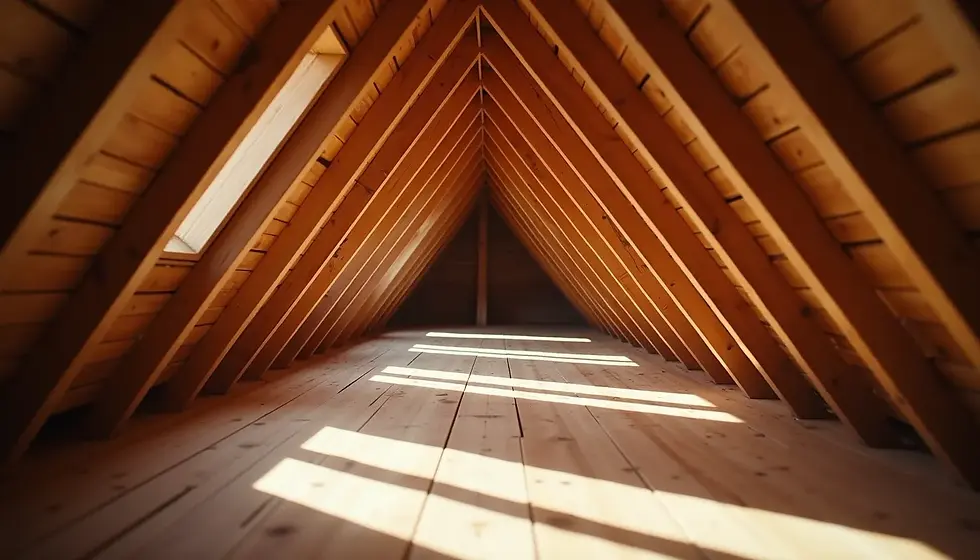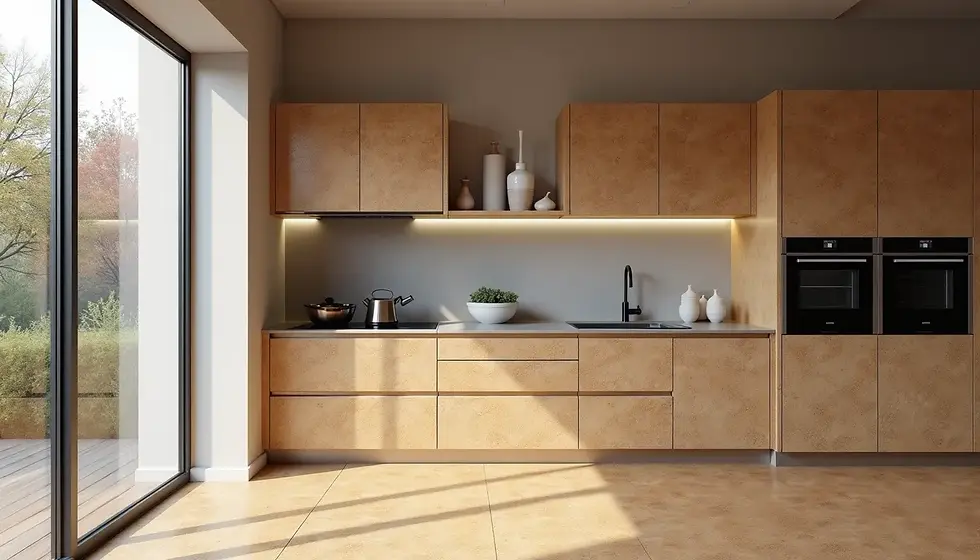Attic Structure Pieces: What Every Homeowner Should Know
- Mei-Lin Arora

- Sep 6
- 3 min read
Updated: Sep 7
Your attic isn’t just wasted space above your ceiling—it’s built on a framework of attic structure pieces that keep your roof strong, your insulation effective, and your home safe. Whether you’re planning a renovation or just curious about what’s up there, knowing the names and functions of these pieces can save you from costly mistakes.
Breaking down the attic structure pieces
Attics are usually framed with a combination of joists, rafters, trusses, collar ties, and baffles. Together, these pieces form the skeleton of your roof.
Joists – horizontal pieces that support the attic floor.
Rafters – angled beams that run from the ridge board to the exterior walls.
Trusses – prefabricated triangular frames used in modern homes.
Collar ties – small horizontal pieces that prevent rafters from spreading.
Baffles – guides that keep insulation from blocking airflow (and yes, choosing the best attic baffles matters for ventilation).
Think of attic structure pieces as the bones of your roof—they may not be glamorous, but without them, nothing stands tall.

Why attic pieces matter for your home’s health
Strong attic framing is essential not only for roof support but also for indoor air quality. Poorly maintained attics can become breeding grounds for moisture problems, often leading to mold.
If you’ve ever seen pictures of attic mold, you know it’s not just ugly—it can spread into living spaces and damage wood. Keeping your attic dry, ventilated, and insulated reduces these risks.
Attic structure vs. decorative pieces
It’s easy to confuse functional attic components with decorative items found elsewhere in the house. For example:
A piece of sod belongs in your lawn, not on your attic floor.
Concrete fountain pieces and cast iron decorative pieces may add beauty to gardens, but they serve no role in attic framing.
Attic pieces are about function: stability, airflow, and load-bearing strength.
This distinction is crucial for homeowners who want to upgrade spaces wisely without mixing aesthetics with structural necessity.
Cost and installation considerations
If you’re repairing or upgrading attic structure pieces, costs vary depending on the scope:
Replacing joists: $100–$300 each.
Installing new trusses: $5,000–$15,000 for a full roof frame.
Adding or upgrading baffles: $2–$3 per piece.
The International Association of Certified Home Inspectors stresses that attic structures should always be evaluated by professionals before modifications.
Cutting into trusses or rafters without expertise can compromise the entire roof.

How attic care connects to energy efficiency
A well-built attic with intact structure pieces keeps your home energy-efficient. Gaps or
sagging joists can allow insulation to fail, making HVAC systems work harder. Properly installed attic baffles also ensure continuous airflow, preventing ice dams in winter and excess heat in summer.
The U.S. Department of Energy notes that sealing and maintaining attics can cut energy bills significantly.
FAQ
What are attic structure pieces?
They include joists, rafters, trusses, collar ties, and baffles that form the roof’s framework.
Why are attic baffles important?
They maintain airflow by preventing insulation from blocking roof vents.
Can decorative pieces like cast iron or concrete fountains be used in an attic?
No—those items are for landscaping, not structural support.
How do I know if my attic has mold?
Look for discoloration on wood or insulation, similar to common pictures of attic mold you may find online.
What’s the cost of replacing attic joists?
Expect $100–$300 per joist, depending on size and labor.
Final thoughts: strong bones, stronger home
Your attic structure pieces are the unsung heroes of your home. While things like cast iron decorative pieces or concrete fountain pieces beautify outdoor spaces, joists, trusses, and baffles keep your roof safe, dry, and energy-efficient. Invest in upkeep, and your attic will protect your home for decades 🏡.



Comments